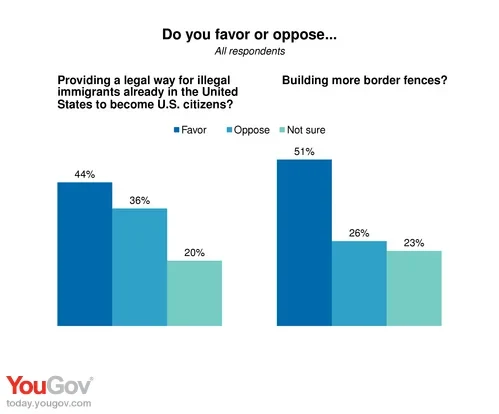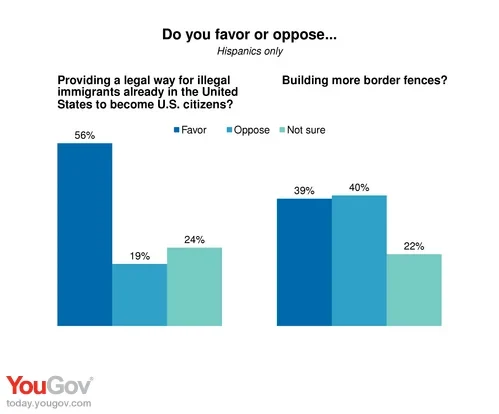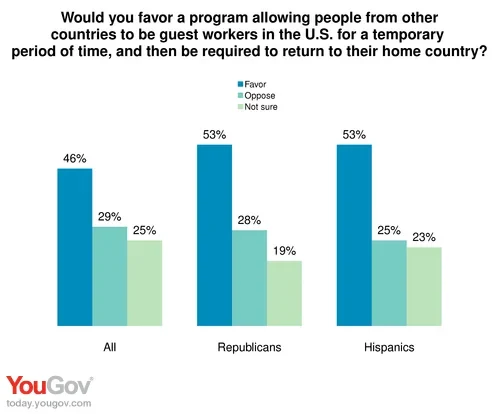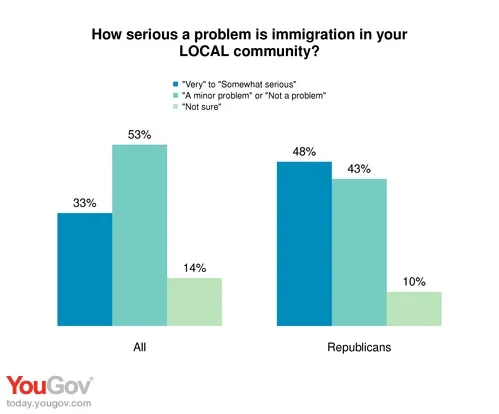(Week of 2/2/2013) More Americans want to block illegal immigrants from entering the country than are willing to consider allowing those in the country to have some pathway to citizenship. In the latest Economist/YouGov Poll, 51% favor building more border fences; just 44% say there should be a legal way for those already in the country to have a way to become U.S. citizens.
There has been little change in how Americans answer these questions, despite the growing impact of Hispanics at the polls and many post-election discussions in Washington of how to deal with the estimated 11 million illegal immigrants in the U.S. Before the election, more Americans also favored fences than figuring out a pathway to citizenship for illegal immigrants.
Hispanic Americans think very differently about how to deal with illegal immigration. A majority of them want some sort of pathway to citizenship, and more oppose than support building more border fences.


However, there is one area where Republicans and Hispanics agree. Overall, 46% support the U.S. having a guest worker program, allowing individuals come to the U.S., work for a while and then return home to their own countries. A majority of Republicans support this idea, as do a majority of Hispanics.

The GOP has been especially concerned recently over how to deal with immigration. Rank-and-file Republicans worry more than other Americans about immigration. And they are more likely to see it as a problem that is affecting them personally. Nearly half of Republicans describe illegal immigration as a serious problem in their own community. Only 27% of Democrats and 29% of independents think this. However, Republicans were two points less likely than either Democrats or independents to personally know an illegal immigrant.
In fact, for most Americans, illegal immigration is not a serious local problem. And immigrations ranks below issues like the economy, taxes, Medicare, health care, education and terrorism when it comes to perceived importance: far fewer say it is a very important issue for them than say that about those other issues.

Economist/YouGov poll archives can be found here
Photo source: Press Association







